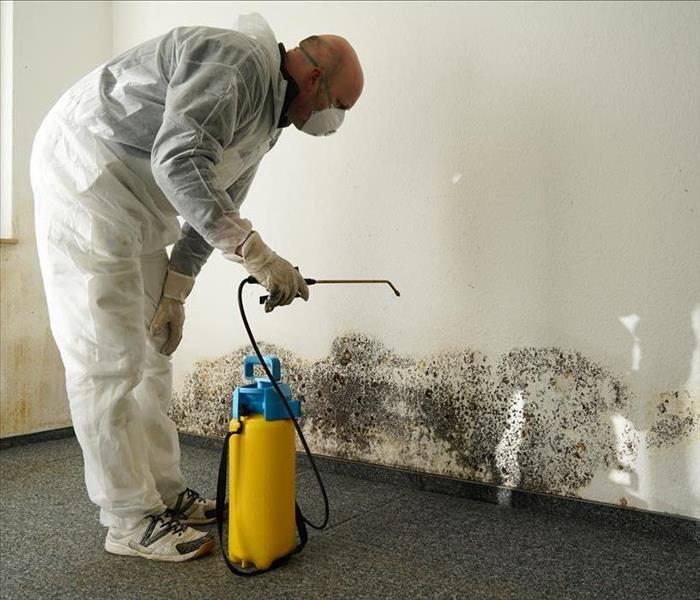Understanding the Limitations of a Renter's Insurance Policy and Mold
6/28/2021 (Permalink)
When you purchase a rental insurance policy, you likely believe it covers you for any personal property loss related to any disaster, but that is not true. Many policies have exclusions, and one popular exclusion is mold damage. However, many insurers will still permit some coverage for a mold remediation service in Ogden, Utah, if the mold is a result of other covered issues, like:
- Lightning or fire
- Hail or windstorm
- Vandalism
- Water damage from plumbing
The only surefire way to know if an insurer will cover mold issues is to talk with them directly. However, there are a few basics that might apply to your policy.
1. Storm Surges
Most rental insurance policies exclude storm surges. If you live in an area where external flooding is possible, consider purchasing additional insurance. A flood insurance policy will offer more protection for your personal property than typical rental policies.
2. Tenant Negligence
No insurance company will cover damages caused by your negligence. For example, leaving wet towels in a corner for weeks that result in mold growth and damage to your personal property is not covered. Furthermore, a landlord might also have grounds for a lawsuit to seek compensation for any structural damage.
3. Structural Damages
As a renter, you are not responsible for mold removal or damage if it stems from a property issue. A leaky pipe, roof damage, internal flooding, etc., are all the landlord's responsibility. However, while the landlord is responsible for structural damage and property upkeep, they are not responsible for damages to your personal property.
If you believe your personal property was affected by a landlord’s negligence, you might want to sue or demand compensation. Before you do so, it might be best to contact a local attorney to receive advice.
Rental insurance, especially standard policies, will not cover mold damage. You will probably need additional coverage for specific issues. You can always talk to your insurer to determine the best course of action and discover what you are covered for.




 24/7 Emergency Service
24/7 Emergency Service
